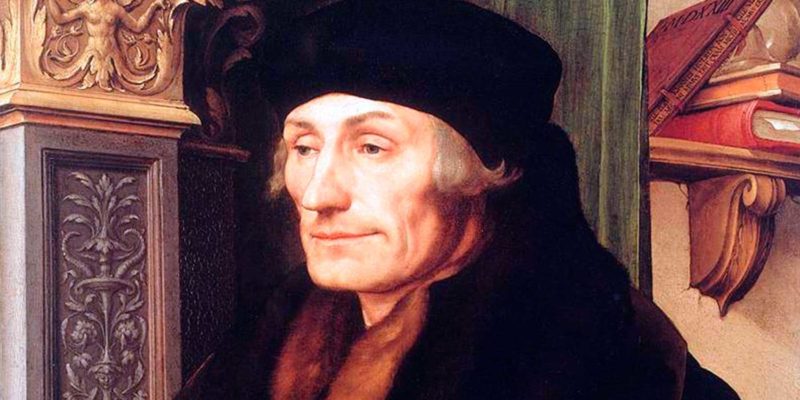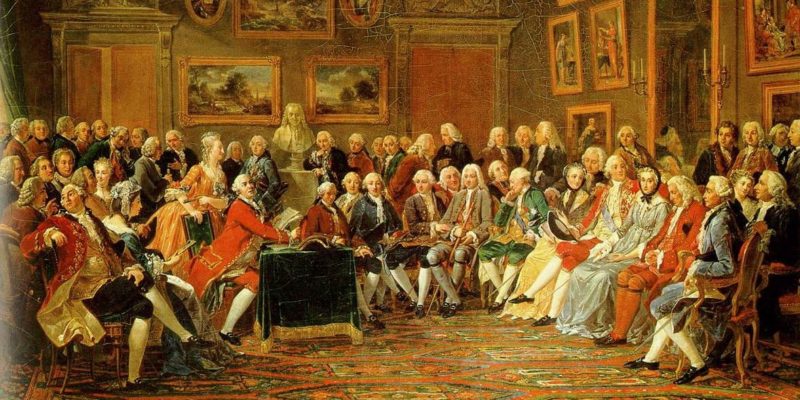We explain what humanism is and what its main characteristics are. In addition, its representatives and the impact it produced.
What is humanism?
Humanism, also known as Renaissance humanism, is a philosophical and cultural doctrine that emerged in 14th century Europe , before the Renaissance , a movement to which it remained closely linked, although the general concept of humanism is much broader.
Humanism was inspired by the culture and classical thoughts of Ancient Greece and Rome , prioritized human reason over faith and was interested in the concept of man as the center of the universe , as opposed to traditional ideas and beliefs of the orthodox religion.
Origin of humanism
 Humanism originated in Italy during the 14th century , in the cities of Rome, Florence and Venice, with the poets and thinkers Dante Alighieri (1265-1321), Francesco Petrarca (1304-1374) and Giovanni Boccaccio (1313-1375).
Humanism originated in Italy during the 14th century , in the cities of Rome, Florence and Venice, with the poets and thinkers Dante Alighieri (1265-1321), Francesco Petrarca (1304-1374) and Giovanni Boccaccio (1313-1375).It was from 1450, with the invention of the printing press, that humanism reached its apogee due to the massive diffusion of its ideas . The Italian intellectual Giovanni Pico della Mirandola was the first to designate the term humanism to designate the movement.
Later, the philosophers Erasmus of Rotterdam (1466-1536) and Michel de Montaigne (1533-1592) rose to prominence as two of the most famous European humanists in history .
Characteristics of humanism
Among the main characteristics of the movement are:
- Anthropocentrism. It consisted of the idea of the human being as the center of all things, as opposed to the theological thought of the Middle Ages in which God was the center of life.
- The figure of the creator god. It was still relevant, since it played a fundamental role in the conception of the universe.
- The use of reason over faith. Human intelligence was considered the supreme value to justify existence.
- The dissemination of knowledge and education . They allowed the population to become empowered and stop being ignorant (during the Middle Ages only the clergy and nobility had access to knowledge).
- Interest in classical philosophy and ideas. The ideas of ancient Greece and Rome are retaken, whose customs had been abandoned during the Middle Ages.
- The rejection of the principles and traditions of the Middle Ages. led the movement to maintain an emphasis on separating the church from the performance of the state .
- The idea of a free individual. In opposition to the obedience of absolute authority, this idea was possible after the incorporation of new knowledge and understanding of reason.
The great diffusion that the movement obtained was benefited by:
- The invention of the printing press, which allowed the dissemination of articles and books on a massive scale.
- The use of vulgar or common language , easily understood by the majority of the population.
- The opening of academies and universities, which allowed other sectors of the population to also have access to education.
Representatives of humanism
 Among the main representatives are:
Among the main representatives are:
- The Dutch Erasmus of Rotterdam (1466-1536).
- The French Michel de Montaigne (1533-1592).
- The Spanish Juan Luis Vives (1493-1540)
- The Italian Leonardo Bruni (1370-1444).
- The English Thomas More (1475-1535).
- The Spanish Antonio Martínez de Cala (1441-1522).
Impact of humanism

Some important impacts that humanism generated were:
- The restoration of various disciplines that promoted knowledge and that were part of Greco-Roman antiquity.
- The revolution in education, with the dissemination of articles and the opening of universities.
- The revaluation of literature and art , which was a great contribution to culture.
The Enlightenment was one of the most important movements to emerge in the 17th century under the influence of Renaissance humanism. This intellectual doctrine emerged in France and relied on the concept of human reason as a basis to explain existence, to combat ignorance and superstition. It was of great influence in the French Revolution .
The above content published at Collaborative Research Group is for informational and educational purposes only and has been developed by referring to reliable sources and recommendations from technology experts. We do not have any contact with official entities nor do we intend to replace the information that they emit.
Luke is passionate about fostering student involvement and connection. He studied psychology for his major and likes learning about the past. Luke aims to specialize in artificial intelligence and cybersecurity. .
Leave a reply
Your email address will not be published. Required fields are marked *Recent post

Sport: What Is It, Types, Risks, Features, Characteristics and Examples

Dogs: Emergence, Features, Characteristics, Feeding and Breeds

Story: Definition, Elements, Structure, Features and Characteristics

